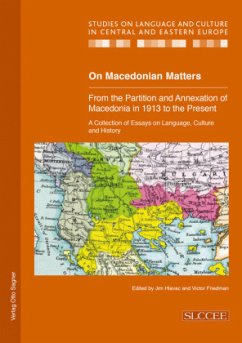Since the fall of communism in 1989, cross-border co-operation between neighbouring states has become a feature of the 'common European home' project. A prominent exception to this trend is Macedonia which today is still subjected to blockade politics and the absence of respect and recognition for Macedonian language, nationality and ethnicity. As a part of Europe under the control of the Ottomans until 1912, Macedonia was less captured by the allure of national romanticism than other areas of Europe, and an embryonic notion of multi-national statehood appeared there. This notion was based on local and regional practices that encompassed groups with different linguistic, cultural and religious heritages rather than being based exclusively on ethnic or religious affiliations. Such a conception of 'nation' which could perhaps provide an aspirational model for many post-industrial, multi-cultural societies in Western Europe in the 21st century was suppressed by the 19th-century nationalism that still characterises much of European politics. This multi-disciplinary book of 15 papers features contributions from historians, political analysts, social theorists, linguists, educationalists and legal specialists tracing the consequences of the Balkan Wars (1912-1913) and the partition of Macedonia on the social, cultural and linguistic landscape of this region.
Bitte wählen Sie Ihr Anliegen aus.
Rechnungen
Retourenschein anfordern
Bestellstatus
Storno








